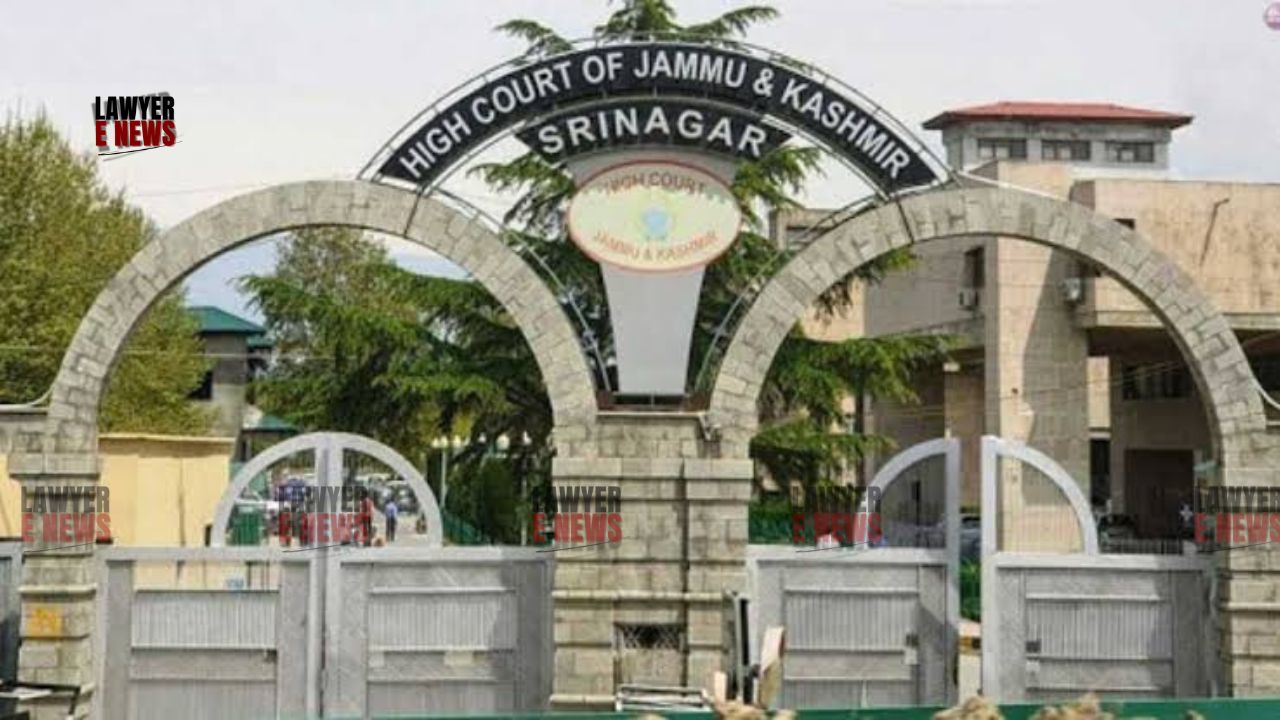-
by Admin
15 February 2026 5:35 AM



Jammu & Kashmir and Ladakh High Court, presided over by Justice Wasim Sadiq Nargal, delivered a significant ruling in the case of Vijay Sharma v. Union Territory of J&K & Ors (WP(C) No. 2240 of 2024). The petitioner, a political leader, challenged the denial of personal security, citing a perceived threat during election activities. The court ordered a reassessment of his threat perception across the entire Union Territory of Jammu & Kashmir during the election period but reinforced the limited scope of judicial intervention in security matters.
Vijay Sharma, Chief Organizer of the Sewa Dal, All India Congress Committee (J&K), petitioned the court after being denied security by the Union Territory's security agencies. The petitioner argued that his political activities during the election exposed him to threats across the entire Union Territory, but security agencies had only assessed his threat level in District Jammu. In a prior writ petition, the court had directed authorities to consider his threat perception based on intelligence inputs. However, the Security Review Coordination Committee (SRCC) maintained that there was no significant threat in District Jammu, prompting Sharma to file a second writ petition.
The core legal issue was whether the court could intervene in the security threat assessments made by the SRCC, particularly in light of the petitioner’s political role and the elections in the Union Territory. Sharma contended that the denial of security was arbitrary, especially since the Ministry of Home Affairs had guidelines to provide security to political workers.
The court, however, emphasized the established legal principle that threat perception falls exclusively within the purview of security agencies. Citing prior judgments (Noor Ahmad Shah v. State of J&K and Dr. Kamal Saini v. State of J&K), the court reiterated that it lacks the mechanism to assess threat perception and cannot replace the security agencies' expert opinion.
Justice Nargal observed that security assessments are a matter of expertise, managed by the SRCC, which relies on intelligence inputs from various field agencies, including the CID and State Special Branch, in accordance with guidelines set by the Ministry of Home Affairs, Yellow Book.
The court reaffirmed that "whether a person needs security cover, and if so, at what level, cannot be adjudicated by the courts." It is for the "empowered committee constituted by the Government" to make such determinations (Para 14). Judicial review in these matters is limited unless there is clear evidence of procedural irregularities or arbitrariness, neither of which was established by the petitioner in this case.
However, considering the ongoing elections and the fact that the petitioner's threat perception was only assessed in District Jammu, the court directed the SRCC to reassess his threat perception for the entire Union Territory. The court clarified that this direction was specific to the facts of the case and should not set a precedent for future matters.
The Jammu & Kashmir and Ladakh High Court disposed of the writ petition, ordering the Security Review Coordination Committee to reassess the threat perception of the petitioner across the entire Union Territory during the election period. The court reiterated that while it can ensure the proper application of legal procedures, it does not have the jurisdiction to question or substitute the expertise of security agencies regarding threat assessments.
Date of Decision: September 20, 2024
Vijay Sharma v. Union Territory of Jammu & Kashmir & Ors
